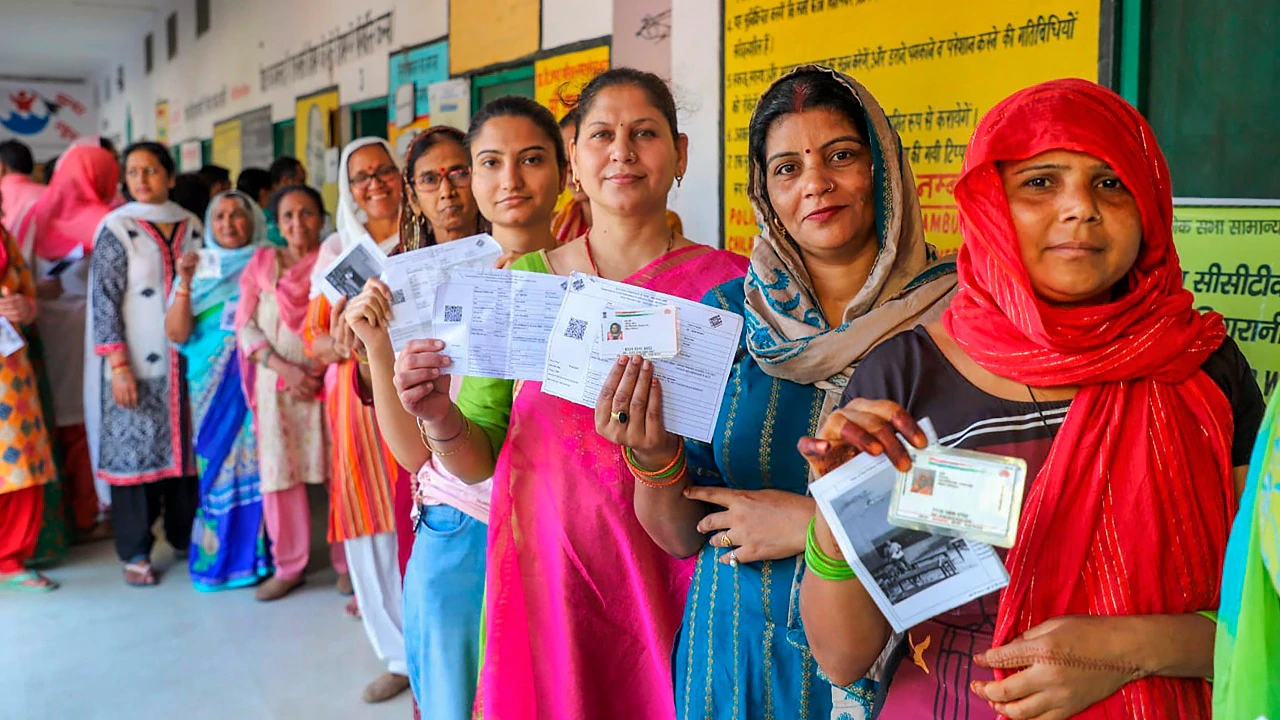The upcoming Maharashtra Assembly elections in 2024 could witness a significant shift, with rising female voter turnout and targeted welfare schemes likely to play a decisive role in determining the outcome. Political parties in the state are increasingly recognising the importance of women as a critical voting bloc, thanks to their growing participation in elections and the introduction of schemes designed to benefit them.
In the 2024 Lok Sabha elections, 59% of registered female voters in Maharashtra turned out to vote, compared to 63% of male voters. While there remains a gap, it has significantly narrowed over the years. In 2004, only 51% of women participated in the elections, while the turnout for men was 58%. By 2019, the difference between male and female voter turnout had shrunk to just 3.75%. This trend suggests that women voters are becoming an increasingly influential force in Maharashtra’s electoral politics. One of the key factors expected to influence the 2024 Maharashtra Assembly elections is the introduction of the Majhi Ladki Bahin Yojana.
The scheme, which is poised to benefit around 2 crore women in the state, could impact up to 56% of Maharashtra’s female electorate if successfully implemented. The scheme is modelled on the Ladli Behna Yojana in Madhya Pradesh, which was instrumental in helping the Bharatiya Janata Party (BJP) mitigate anti-incumbency and secure victory in the December 2023 state elections. The Ladli Behna Yojana, launched just a year before the Madhya Pradesh elections, promised Rs 1,250 per month to women who met specific age and income criteria. In Maharashtra, Chief Minister Eknath Shinde has pledged to double the monthly payment if his government is re-elected.
Such schemes are seen as a strategic move to gain the support of women voters, who are increasingly seen as capable of swaying election results. The rising female voter turnout and the introduction of targeted welfare schemes indicate a broader trend where women voters are no longer overlooked in the political landscape. In Maharashtra, women have emerged as a decisive force capable of shaping the state’s political future. This trend is also evident at the national level, where women voters are becoming a key demographic that political parties cannot afford to ignore.
As the 2024 Maharashtra Assembly elections draw nearer, the political landscape continues to evolve. The growing participation of women in the electoral process and the introduction of schemes specifically designed to benefit them suggest that political parties will increasingly focus on winning the support of this crucial demographic group. With women now recognised as a powerful electoral force, their choices could play a pivotal role in determining the direction of Maharashtra’s governance for the years to come.


